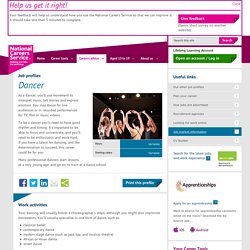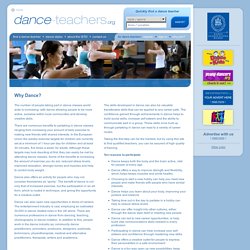

What to do with a degree in Drama Studies. A degree in drama won't automatically guarantee you a place in the limelight, but it has certainly helped some household names, including Dame Judi Dench, who graduated with first-class honours in the subject, and comedians Matt Lucas, David Walliams and Dawn French.

Even for those who don't make it on to the stage or big screen, a drama degree can open doors to equally rewarding roles, such as being an arts consultant, set designer or visual artist. While drama school allows students to hone their acting technique, a drama degree takes a more theoretical approach, covering topics such as script-writing and theatre design, giving graduates a thorough grounding in the subject and widening their career options in a highly competitive field. What skills have you gained? Confidence and self-presentation, analytical skills, self-discipline and an ability (hopefully) to handle criticism.
What jobs can you do? Postgraduate study? Dancer Job Information. Page Content Dancer HoursVariableStarting salaryVariable As a dancer, you’ll use movement to interpret music, tell stories and express emotion.

You may dance for live audiences or in recorded performances for TV, film or music videos. To be a dancer you’ll need to have good rhythm and timing. Many professional dancers start lessons at a very young age, and go on to train at a dance school. WorkDesc Work activities Your dancing will usually follow a choreographer's steps, although you might also improvise movements.
Classical balletcontemporary dancemodern stage dance (such as jazz, tap, and musical theatre)African or Asian dancestreet dance. Performing will only be a small part of your work. Rehearsingpreparing for and going to auditionsgoing to dance classes to keep fit and maintain your skillspromoting yourself and finding the next job. You might also combine performing with other activities such as teaching, choreography, community dance, or arts administration. HoursDesc IncomeDesc Income News. The Benefits of Dance. The number of people taking part in dance classes world wide is increasing, with dance allowing people to be more active, socialise within local communities and develop creative skills.

There are numerous benefits to partaking in dance classes ranging from increasing your amount of daily exercise to making new friends with shared interests. In the European Union the weekly exercise targets for children are currently set at a minimum of 1 hour per day for children and at least 30 minutes, five times a week, for adults. Although these targets may look daunting at first, they can easily be met by attending dance classes.
Some of the benefits to increasing the amount of exercise you do are; reduced stress levels, improved relaxation, stronger bones and muscles and help to control body weight. Dance also offers an activity for people who may not consider themselves as ‘sporty’. Dance can also open new opportunities in terms of careers. Ten reasons to participate. Job profiles Music. Musicalchairs - Classical Music Jobs, Courses & Competitions. Music Career Advice - Blog & Industry Articles. Singing and Vocal Careers. There are many ways in which a singer can earn a living although the wages vary considerably depending on style, experience, competance and the performers popularity.

A singer may earn anything between nothing to £30.00 an hour and upwards. Latest average rates are usually available from organisations like the Musicians Union. Whilst many performers are happy to sing for pleasure rather than pay it is always nice to be paid for something that you enjoy doing. The following information is a guide to various types of vocal styles plus singing and voice related job opportunities.
Competition is high, therefore any singer needs to be proficient and the majority of experienced singers will diversify by performing a variety of musical styles depending on their vocal capabilities and educational training. Acappella Acappella is the term used for singing without the aid of accompaniment and takes far more skill than the listeners realise. Backing Singer Blues Singer Busker Cabaret Singer Diva. Careers in Performing Arts. Performing arts degrees are generally either practice-based (involving a great deal of actual performance) or academic, which combines practical work with analysis of the background of the subject.

Teaching is therefore likely to be delivered through a mix of practical workshops and lectures. Most performing arts degrees provide an overall foundation spanning various disciplines, before asking students to choose a particular pathway. Universities may offer dedicated degrees for each of the main three branches of performing arts – music, dance and drama.
You may also be able to specialize in a more obscure art form during your degree (read the ‘specializations’ tab for more information). Take a close look at course descriptions to see if they sound right for you and your interests. At undergraduate level, most performing arts degrees are three or four years long; this will depend on where you study. Entry requirements You’re likely to be asked to attend an audition. Improvisation.